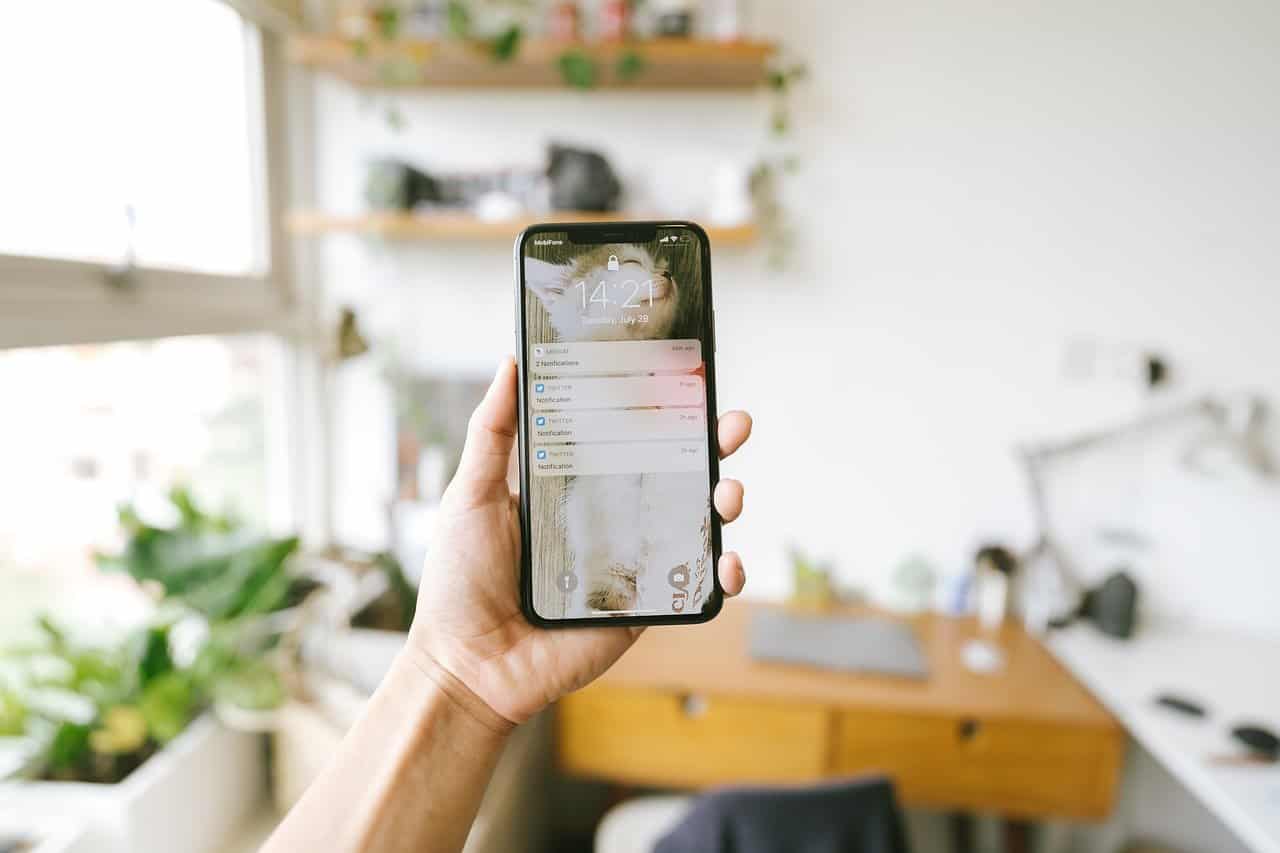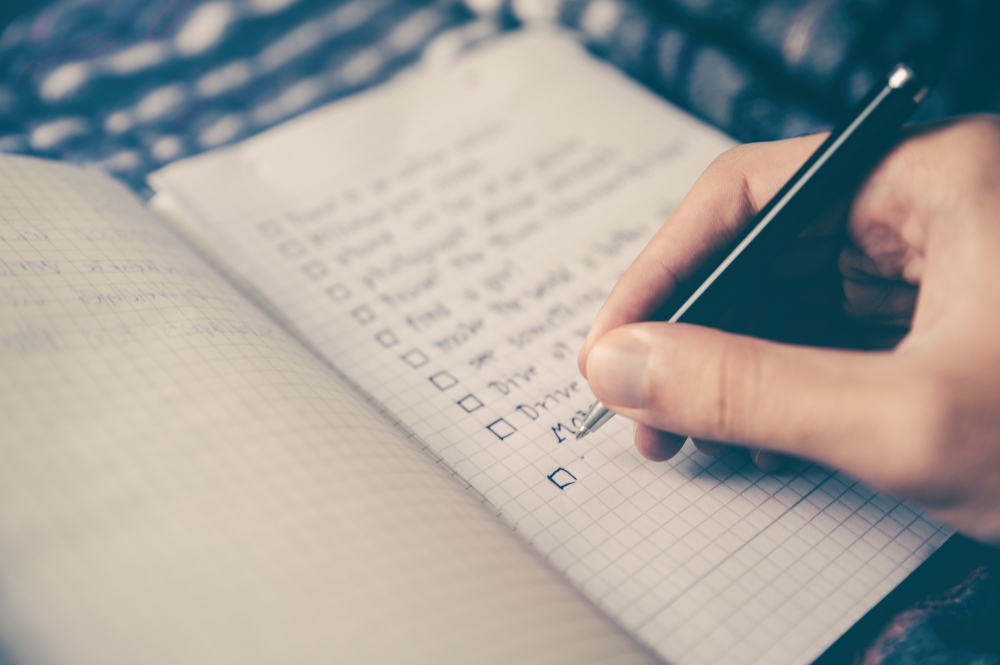This article has been contributed by Alistair Knight.
Being a freelancer can be extremely rewarding. You’re able to be your own boss and can work whenever and wherever you want. You can wake up early before the rest of the world or sleep in and hit the snooze button as often as you like. If you make it a priority, you can take better care of your mental and physical wellness while spending more time with your family, pets and other loved ones.

With more freedom comes more responsibility. You are responsible for your own style of communication and client needs, as well as your own bottom line, business goals, values, and work ethic. On top of all that, it’s essential that you keep yourself organized and prevent work-related stress and burnout.
I’ve been a freelancer for almost three years, and based on my experience, here are the top 13 habits for becoming a more productive and efficient freelancer.
1. Go to Bed and Wake Up at the Same Time Each Day
Repetition and routine are essential as a freelancer. It doesn’t matter whether you like to wake up at 5 a.m. with a cup of coffee and a perusal of the daily news, or if you sleep in until noon with your pup. It’s what you do with your time once you’re awake.
Find a time that suits you best and set your alarm every day. Half the battle is getting out from underneath your covers and physically moving to a place that inspires creativity and production. Don’t limit this habit to workdays only. Make it a priority every day of the week and watch your productivity rise.
Going to bed and waking up at the same time every day will allow you to set your schedule efficiently and help you get a more restful sleep every night when you put your head to the pillow. Better sleep promotes:
- less fatigue
- reduced caffeine dependency
- better mood
- less pain
- improved alertness
What could you do with all of these benefits?
2. Turn Off Your Notifications
Imagine how many times throughout the day you hear your phone call out to you with a loud and crisp ding or a customized snippet of a song. It happens every time a friend posts a new Facebook photo, you get a new connection on LinkedIn, or receive a spam email from that website you signed up to three years ago.
Depending on how many apps you have activated on your phone, you’re looking at an average of 85 push notifications per day. Even if you spend, on average, two minutes per notification, you’ve wasted nearly three hours of your day unfocused from the task at hand.
A recent study suggests that fully getting back to work after a push notification jolts your attention takes an astounding 23 minutes. Do the math, and you’re quite literally losing days at a time by enabling all notifications on your phone. Imagine all the work you can do without digital distractions. Disable your notifications. Do it now.
3. Separate Your Living Space From Your Workspace
When you freelance, you’ll likely be working from home a good chunk of the time. I know I do, and distractions are everywhere. The dishes pile up in the sink. Your dog whimpers at the mailman. Your neighbor stops by with a ding of the doorbell to say hello and then fires up the lawnmower.
If you choose to create a home office, make sure it has a door. Having a door creates both a mental and a physical barrier to the world around you. Condition yourself so while you’re behind that closed door, you will not respond to distractions. Score a nice pair of noise-canceling headphones and an adjustable height standing desk to block out everything around you and fire up those brain cells.
Another option is to grab a coworking space membership or rent out a small office in a nearby industrial area. Coworking spaces provide a working station, wifi, community and often free coffee and light snacks.
Work smarter. Not harder.
4. Get The Hardest Work Done First
If you’re one of the freelancers that wakes up and tackles small and nonessential tasks first thing, you’re not alone. Completing tasks and being able to cross them off your to-do list is a satisfying feeling. You potentially pick up steam, count your little wins and feel accomplished.
I do the opposite. I do the most challenging tasks first.
According to this study, I’m doing it right. Doing the most challenging tasks first enhances productivity in the long run. Here’s why:
Are you interested in being a freelancer for a month or a decade? If you want constant and short-term gratifying highs in your freelance career, keep putting off the challenging tasks until the end. You’ll eventually reach quitting time and push the most challenging tasks off until tomorrow. Then the next day. Then next week.
If you do the most challenging work as soon as you start your workday, you condition yourself to face formidable work headfirst and with a clear mind. Once you’re done, the smaller tasks seem inconsequential in comparison, allowing you to capitalize on your momentum.
You complete everything on time and retain your clients for months, or years, to come.
5. Take Regularly Scheduled Breaks
We are human beings, not copy-spewing, proposal-creating, conference-calling robots.
Even the most dedicated and self-disciplined workers, when faced with an eight-hour workday with minimal break time, are prone to focus splitting.
Facebook windows pop up in the browser. Highlights of last night’s match whisper in the background. Eyes unfocus, minds wander.
Combat this with regularly scheduled microbreaks. Researchers have found that the optimal workday includes 52 minutes of intense focus and undivided attention to work followed by a 17-minute break. Workers who completed this kind of schedule outperformed their non-break-taking colleagues.
I extend my working time from 52 minutes to a full hour because it’s easier for me to remember. During my breaks, I mindlessly watch half a TV show, make a cup of tea, stare out the window, or call my mother. This system allows me to activate a self-reward mechanism. At any time during my workday, I know I have to work an hour or less before my next reward (break).
Work can sometimes feel monotonous, draining, stressful, or frustrating.
Take a break.
6. Exercise
Do you like living? Me too.
Other than quite literally reducing your risk of death, exercising for just 15 minutes per day gives your body the following benefits:
- Lose weight
- Reduce the chance of heart disease
- Increased blood flow
- Brain cell regeneration
- Lower cholesterol
- Lower risk of stroke
- Lower risk of diabetes
- Lessens anxiety
- Boosts mood
With the 17-minute breaks you’ve packed into your schedule throughout the day, you no longer have an excuse to treat your body similar to a punching bag. In addition to the obvious physical benefits, working out or even going for a short walk helps your mental acumen and acuity.
Exercise helps unleash endorphins, which improve the prioritizing functions of your brain. Immediately after you’ve exercised, you can block distractions and concentrate on the task at hand because your ability to figure out priorities improves.
Want to feel happier, less stressed, and more productive? Take a walk.
7. Limit Your Social Media Time
Unless you are a broke freelancer looking for networking and work opportunities or do social media marketing as part of your profession, take it easy on social media usage.
When my freelancer friends have a lot of work on their plate, I often hear: “I’m swamped, mate. I wish I had more time.”
I know how to create time. Straight out of thin air. Want to know the secret?
Delete your social media.
For some of you, that’s a preposterous proposition. Unless your bottom line is directly affected by lead generation, digital and social media marketing, brand management, or something related, I highly doubt snapchatting with your buddies or Tweeting out what you had for breakfast, lunch and dinner is helping your business.
The average social media user scrolls for 144 minutes per day. There’s a reason drug addicts and social media consumers are called users: they’re addicted.
In denial? Monitor yourself with one of these social tracking apps, and see how much time you could be saving.
8. Limit Your Email Time
In professional circles, email is even more popular than social media. So much, even, that over 75 percent of those surveyed said they would rather get business opportunities through email than social.
Fear of missing out (or FOMO) is most often associated with social media, but the same rings true for emails. Perhaps you are waiting for an answer from a client about a business opportunity. Maybe you’ve sent a digital deliverable to an existing client and you’re awaiting feedback. Possibly you’ve sent a proposal to another firm in hopes of building a partnership.
All through email.
I used to refresh my email account, at a minimum, over 100 times a day. I thought responding immediately would make me look more professional instead of a desperate freelancer. All it did was make me so anxious I was nearly ripping my hair out.
Now I have email open for one hour in the morning and one hour in the evening. By limiting my email time, I communicate more effectively and efficiently and include all pertinent information for my recipient. This mitigates the need for an email chain containing more than 100 messages.
To become more productive, you need to get out of your own way.
9. Set A Strict ‘Stop Work’ Time
Burnout.
It’s happened to me, and I bet it’s happened to you. But if it hasn’t, let me explain it for you. Self-care is petrol for our bodies.
Without it, we cannot function. In this example, we’ll follow a workaholic named Steve as he attempts to complete a marathon.
Because Steve hasn’t slept, eaten or drunk properly, meditated, exercised or spent any time with loved ones in the past few months due to his self-imposed 80-hour workweek, he faceplants right around the 10-kilometer mark, needing medical attention to save his life.
Don’t be like Steve.
It’s a simple fix: Take care of yourself. Finish your workday at the same time every day. Working 36-38 hours every week is the optimal amount of time you should be spending on work-related tasks. Restricting the amount of time you work creates a positive twofold effect: You work more efficiently with the time you have, and you stop overworking yourself like our friend Steve.
10. Automate
If you’re a freelancer, chances are that you work with other people regularly.
If you have a high volume of clients, are sending out many documents per day, or both, it’s time to automate.
Sign up for a CRM like Hubspot Free or Bonsai and set up the following automations:
- Recurring invoices
- Payment reminders
- Email marketing templates
- Social media posts or a social media calendar
- Proposals
- Appointment bookings
- Forms
How much time do you spend doing the same tasks over and over again? As a freelancer, you are the head of finances, marketing, sales, product and design for your business.
Make it easy for yourself. Invest your time in automating your future so that your business works for you, not the other way around.
11. Read A Book Every Week
Most of the habits in this article are confined to the four walls of an individual workday. The following is an exception.
Unless you are Bill Gates, Jeff Bezos or a high-level executive at an insanely profitable company, there are people that have a higher business acumen than you do. To learn about successful business and freelance practices for your small operation, business, or agency, you need guidance from those who have succeeded in the past.
The benefits of reading include increased empathy, higher intelligence, healthier habits and a new perspective on everyday life.
By reading books directly related to your specific niche, you’re able to gain insights on how to better communicate, plan and budget within your business for better results and higher productivity.
Don’t know where to start? I recommend the following:
- The 4-Hour Work Week by Tim Ferris
- Rework: Change the Way You Work Forever by David Heinemeier and Jason Fried
- Think and Grow Rich by Napoleon Hill
- Rich Dad, Poor Dad by Robert Kiyosaki
- Ego Is the Enemy by Ryan Holiday
- Anything You Want: 40 Lessons for a New Kind of Entrepreneur by Derek Sivers
- The 7 Habits of Highly Effective People by Stephen R. Covey
- The Power of Now by Eckhart Tolle
- Stop Thinking as a Freelancer by Liam Veitch
Also check out the app Blinkist, where you can listen to whole book summaries in 15 minutes or less.
12. Say No
As a freelancer, you can say no.
No one employs you. You do not collect benefits, get paid time off, or any other perks salaried or hourly employees receive. It is squarely in your right to say no in any situation you deem unworthy. That said, I don’t suggest turning down work with a reliable and professional client just because you want to watch the match or go for a swim at the beach.
The fact is, not all businesses have their act together. Collaborating with a client that doesn’t know what they want, pushes you around, or expects the world from you for minimal compensation doesn’t always work out and often becomes toxic.
I rarely regret passing up work. However, I regret signing agreements with companies I didn’t research thoroughly enough, only to later find out I’m in a toxic environment. Steer your career, don’t hop in the passenger seat.
13. Go Outside
What do you think of when you think of work?
Do you think of offices? Meetings? Interviews? Emails? All the above?
I’ll bet most of the mental images that pop up are indoors.
And let’s get one thing straight: There is more to life than work. There’s a vast world right outside your office.
There are beautiful forests, beaches, sunrises and mountains. There is fresh air and life forms of all shapes and sizes. Spending time outside is one of the fastest ways to improve your health and happiness because the planet we all call home is fantastic!
Besides putting a smile on your face and giving you a mood boost, studies have shown that interacting with nature lowers blood pressure, stress, and heart rate while alleviating pain and promoting an overall sense of well-being.
I feel the most productive without stress, pain, or anxiety.
Do you?
_
About the author: Alistair Knight is an Author for UpDown Desk Australia. He loves sports, time with the family, and good food! You can follow him on Twitter.




